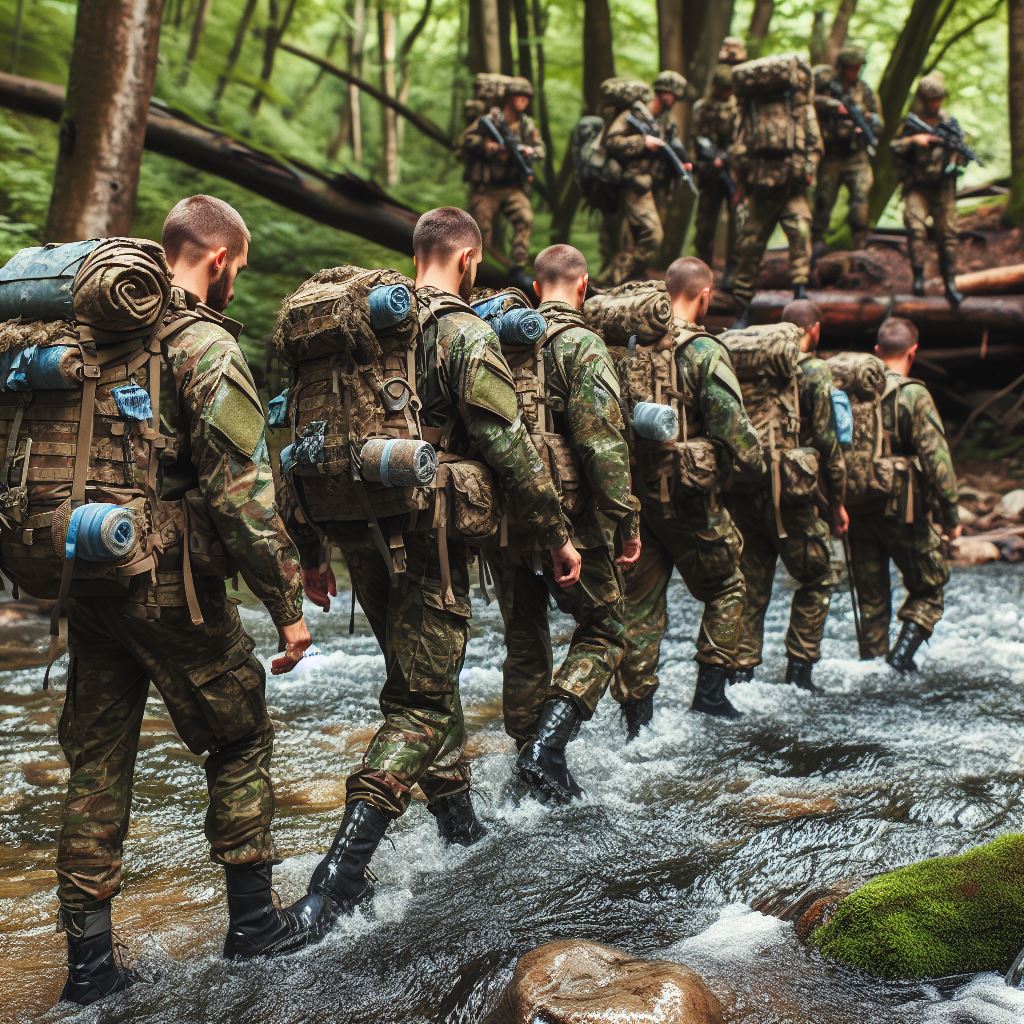Failing SERE training can result in immediate consequences, such as the need for additional training or reevaluation. Repeated failures may have more significant implications for an individual’s military career, including potential career advancement challenges, increased scrutiny, and psychological effects. However, it’s important to note that individuals are often given opportunities for retraining and improvement.
Survival, Evasion, Resistance, and Escape (SERE) training is a crucial component of military preparation, designed to equip individuals with the skills needed to navigate challenging situations. Failing SERE training, however, comes with significant consequences that extend beyond the immediate setbacks.
Details Of SERE Training
SERE training, which stands for Survival, Evasion, Resistance, and Escape, is a specialized military training program designed to prepare personnel for potential capture by the enemy and to enhance their ability to survive in hostile environments.
Here are the key components of SERE training:
Survival
Involves teaching military personnel essential skills for surviving in challenging environments. This includes learning how to find food and water, build shelters, navigate unfamiliar terrain, and administer basic first aid.
Evasion
Focuses on teaching individuals how to avoid capture in hostile situations. This includes strategies for moving stealthily, understanding the terrain for effective evasion, and utilizing natural cover.
Resistance
Addresses the training on resisting interrogation and exploitation if captured by the enemy. Personnel learn about the Code of Conduct and how to withstand psychological and physical pressures while in captivity.
Escape
Involves teaching techniques and tactics for escaping from captivity. This includes methods for breaking free from restraints, navigating in hostile territory, and making contact with friendly forces.
SERE training is rigorous and often involves realistic scenarios to simulate the challenges military personnel might face in combat or behind enemy lines. The training aims to instill a mindset of adaptability, resilience, and quick decision-making in participants. It is crucial for military readiness, ensuring that individuals are well-prepared to handle the unpredictable nature of warfare and potential capture.
The training is typically divided into different phases, each addressing specific aspects of survival, evasion, resistance, and escape. Participants may undergo classroom instruction, field exercises, and even simulated captivity scenarios to provide a comprehensive and realistic training experience. Successful completion of SERE training is essential for military personnel, as it equips them with the skills and mindset needed to navigate the complexities of modern warfare and ensure their survival in adverse conditions.
Consequences of Failing SERE Training
Immediate Repercussions
Failing SERE training results in immediate consequences, often leading to additional training or reevaluation. Individuals may need to retake specific modules or undergo additional support to address the identified shortcomings.
Impact on Military Career
Repeated failures in SERE training can have a detrimental impact on one’s military career. The inability to demonstrate proficiency in survival skills raises concerns about an individual’s readiness for challenging deployments.
Psychological Effects
The psychological toll of failing SERE training is profound. The sense of disappointment and self-perceived failure can affect an individual’s confidence and resilience, impacting their overall mental well-being.
What Happens if You Fail SERE Training?
Failing SERE training, or Survival, Evasion, Resistance, and Escape training, can have several consequences, both immediate and long-term, impacting the individual’s military career and personal well-being. Here are some key outcomes:
Immediate Repercussions
Failing specific components of SERE training may result in immediate consequences. This could involve additional training modules or reevaluation to address the identified shortcomings.
Repeat Training
Individuals who fail certain aspects of SERE training may be required to undergo additional training to ensure they grasp the necessary skills. This could extend the overall training duration.
Career Implications
Repeated failures in SERE training can have a detrimental impact on the individual’s military career. The inability to demonstrate proficiency in survival skills may raise concerns about their readiness for challenging deployments.
Psychological Effects
Failing SERE training can have a significant psychological impact on individuals. The sense of disappointment, self-perceived failure, and the pressure associated with the training may affect confidence and resilience.
Increased Scrutiny
Individuals who fail SERE training may face increased scrutiny in terms of their overall fitness for specific roles within the military. This scrutiny can influence future assignments and opportunities.
Retraining Requirements
Depending on the circumstances of the failure, there may be requirements for the individual to undergo specific retraining before being considered fully qualified.
Career Advancement Challenges
Failing SERE training may pose challenges for career advancement within the military. It could affect promotions and opportunities for specialized roles that require a successful completion of such training.
Peer Perception
Failing SERE training might influence how peers and superiors perceive an individual’s capabilities and commitment. Overcoming the initial setback and demonstrating improvement become crucial in shaping perceptions.
It’s important to note that while failing SERE training can be a setback, it does not necessarily define an individual’s entire military career. Many personnel who initially struggle go on to complete the training with additional support, demonstrating resilience and a commitment to improvement. The military often provides resources and assistance to help individuals overcome challenges and succeed in their training endeavors.
Strategies for Success in SERE Training

Success in SERE training requires a combination of mental preparedness, physical conditioning, and the effective utilization of learned skills.
Mental Preparedness
Mental resilience is a cornerstone of SERE training success. Participants are trained to approach challenges with a focused and adaptable mindset, enabling them to navigate the unexpected.
Physical Conditioning
The physical demands of SERE training cannot be understated. Physical fitness contributes to an individual’s ability to endure challenging conditions, from evading capture to navigating difficult terrain.
Utilizing Learned Skills
Acquiring and effectively using the skills taught in SERE training is paramount. From building shelters to signaling for rescue, participants must demonstrate proficiency in applying their training in real-world scenarios.
The Bottom Line
The significance of SERE training cannot be overstated. While the consequences of failure are substantial, the training offers valuable lessons in resilience, adaptability, and decision-making. Embracing the challenges of SERE training contributes to the overall preparedness of military personnel.
FAQs With Answers About What Happens if You Fail SERE Training
Can you fail SERE training?
Yes, it is possible to fail SERE training. The training is intentionally challenging and designed to push individuals to their limits, testing their ability to survive, evade, resist, and escape in various scenarios.
What is the fail rate for SERE?
The fail rate for SERE training can vary and is not always publicly disclosed. The training’s difficulty ensures that not everyone may complete all aspects. Success often depends on the individual’s adaptability, resilience, and ability to master the required skills.
What is the hardest SERE training?
Determining the “hardest” SERE training can be subjective, as different branches of the military may have their versions. For example, the U.S. Air Force, Army, and Navy all have SERE training programs. The difficulty may also depend on the specific components of the training and the individual’s background and capabilities.
What happens if you fail Air Force Special Warfare training?
Failing Air Force Special Warfare training, including SERE training, can have various consequences. Individuals who fail may be subject to reevaluation, additional training, or, in some cases, reassignment to a different career field within the Air Force. The specific outcomes can vary based on the circumstances of the failure.

